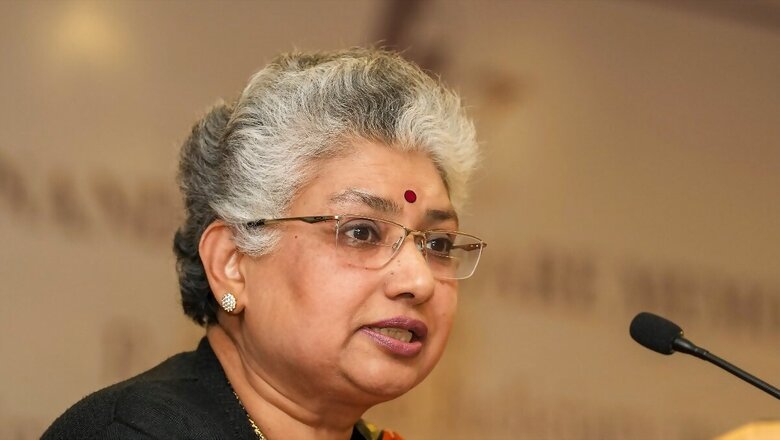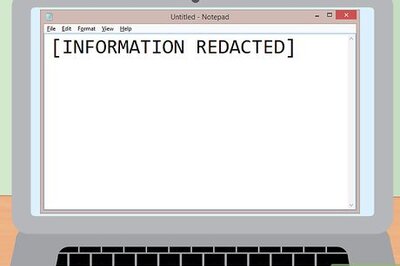
views
Supreme Court Judge BV Nagarathna has warned against the recent trend of governors delaying action on bills passed by state governments indefinitely. She emphasised that governors must fulfill their duties under the Constitution.
Addressing the fifth edition of the ‘Courts and the Constitution Conference’ at NALSAR University of Law in Hyderabad, Justice Nagarathna stated, “The recent trend has been that the Governor of a state is becoming a point of litigation because of either omission by not considering the bills in assenting or giving opinion on the bills or other kinds of actions which the Governors would take. I feel this is not a healthy trend under the Constitution to bring the actions or omissions of the Governor of a state for consideration before constitutional courts.”
She added that it was ‘quite embarrassing’ for governors to be directed on their actions, adding, “Hence, the time has come where they would be now told, I suppose, to discharge their duties in accordance with the Constitution.”
“The Governors must discharge their duties under the Constitution in accordance with Constitution, so that this kind of litigation before the law courts reduce,” she emphasised.
Justice Nagarathna’s remarks followed a recent incident where a three-judge bench led by Chief Justice of India DY Chandrachud expressed concern over Tamil Nadu Governor RN Ravi’s refusal to reinstate DMK leader K Ponmudi as a minister.
During the same event, Justice Nagarathna discussed her dissent in the demonetisation case, expressing reservations about the government’s decision. She highlighted that in 2016, when demonetisation was announced, 86% of currency in circulation consisted of Rs 500 and Rs 1,000 notes, and 98% of it returned after the ban, suggesting it was an ineffective measure against black money.
“I thought it was a way of converting money into white money by this demonetisation because firstly, 86 per cent of the currency was demonetised and 98 per cent of the currency came back and became white money. All the unaccounted money went back to the bank. I thought it was a good way of getting unaccounted cash accounted. Therefore, this common man’s predicament really stirred me. Therefore, I had to dissent,” she explained.
The conference also featured addresses from Supreme Court judges of Nepal and Pakistan, namely Justices Sapana Pradhan Malla and Syed Mansoor Ali Shah. Telangana High Court Chief Justice Alok Aradh and NALSAR Chancellor Justice S Ravindra Bhat also spoke at the event, as stated in a press release from NALSAR.
(With inputs from PTI)



















Comments
0 comment